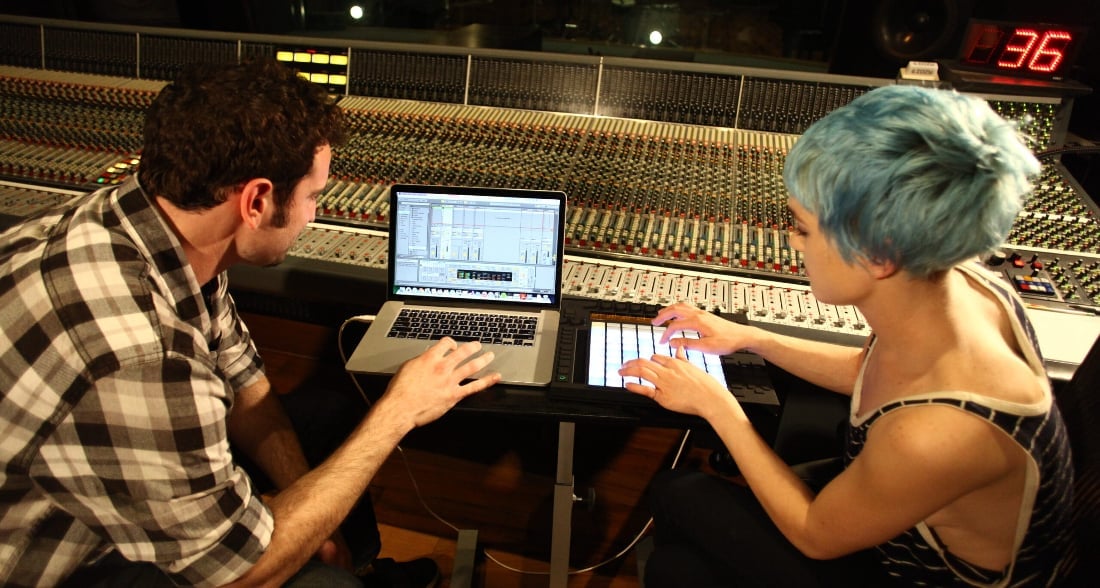What is a recording engineer?
This highly skilled professional is responsible for all the technical aspects of recording, from capturing the initial sounds to editing and mixing the final product. Whether they’re working in a music studio, on a film set, or in live performances, recording engineers play an essential role in the production of all things audio.
When it comes to recording music or audio, the primary role of a recording engineer is crucial. It involves more than just plugging in some microphones and pressing “record.” A recording engineer is responsible for setting up and operating various audio equipment to capture sound accurately.
This can include everything from mixing consoles and preamps to digital audio workstations and various audio processing tools. The recording engineer works closely with musicians, artists, producers, and directors to ensure that the final sound quality meets the desired artistic vision. A skilled recording engineer can make all the difference in the world when it comes to producing a flawless recording.
Recording engineers make sure that all sound levels are appropriately balanced and consistent throughout the recording. They also have to eliminate any unwanted background noise that might detract from the overall quality of the recording. Once the recording phase is complete, the engineer moves on to the editing and mixing stages. In the mixing phase, they bring all the individual elements together to create a final mix that is both polished and full of depth.
What does a recording engineer do
The day-to-day tasks of a recording engineer range from technical to creative to personal–and it all comes together to make their clients sound their very best. They capture, manipulate, and refine the audio during the recording process. Recording engineers work closely with artists and producers to understand their creative vision and make technical decisions to achieve the desired sound.
The recording engineer prepares the recording studio or location for the session by setting up microphones, audio interfaces, headphones, and other audio equipment needed for capturing sound. During the recording session, the engineer operates the recording equipment, ensuring that all audio sources are captured cleanly and without distortion or unwanted noise.
In some cases, the engineer facilitates overdubbing (recording additional parts) or punch-ins (re-recording specific sections) to fix mistakes or improve performances. They apply signal processing techniques like equalization (EQ), compression, and reverb to shape the sound and enhance the recordings as needed.
They must be knowledgeable about audio equipment and software, and ready to troubleshoot technical issues that may arise during recording. Recording engineers may also be involved in the mastering process, which involves preparing the final mix for distribution by optimizing its sonic characteristics and ensuring consistency across different playback systems.
How do you become a recording engineer
There are a few different ways to get the necessary knowledge, skills, and experience in the field of audio engineering to become a recording engineer. You can try to learn audio engineering on your own through online resources, attend a university or trade school, or find a mentor that you can learn from directly.
Recording Connection offers a mix of all three: We place you in a real-world recording studio and pair you with a mentor, where you’ll learn the technical side of recording engineering as well as how to act during a session and build relationships with clients. You build your skills, your portfolio, and your professional network all in six to nine-month programs.
Take advantage of this opportunity to work in a recording studio and get hands-on experience with the gear professionals around the world work with. Familiarize yourself with audio software and equipment commonly used in recording studios, such as digital audio workstations (DAWs), microphones, mixing consoles, and signal processors. You’ll practice recording and mixing music, voiceovers, or other audio content to improve your technical skills.
You will develop a keen ear for sound and train yourself to identify different frequencies, tonal characteristics, and spatial positioning in recordings. Learning how to listen critically will help you make precise adjustments and create well-balanced mixes. Networking is also crucial in this industry, so attend audio-related events, workshops, and conferences to connect with other professionals and potential clients outside of Recording Connection.









